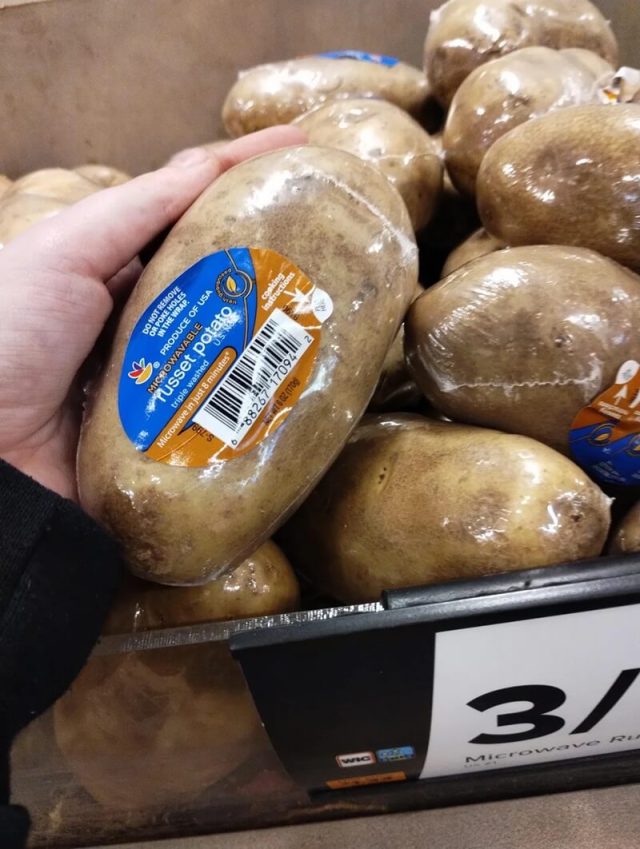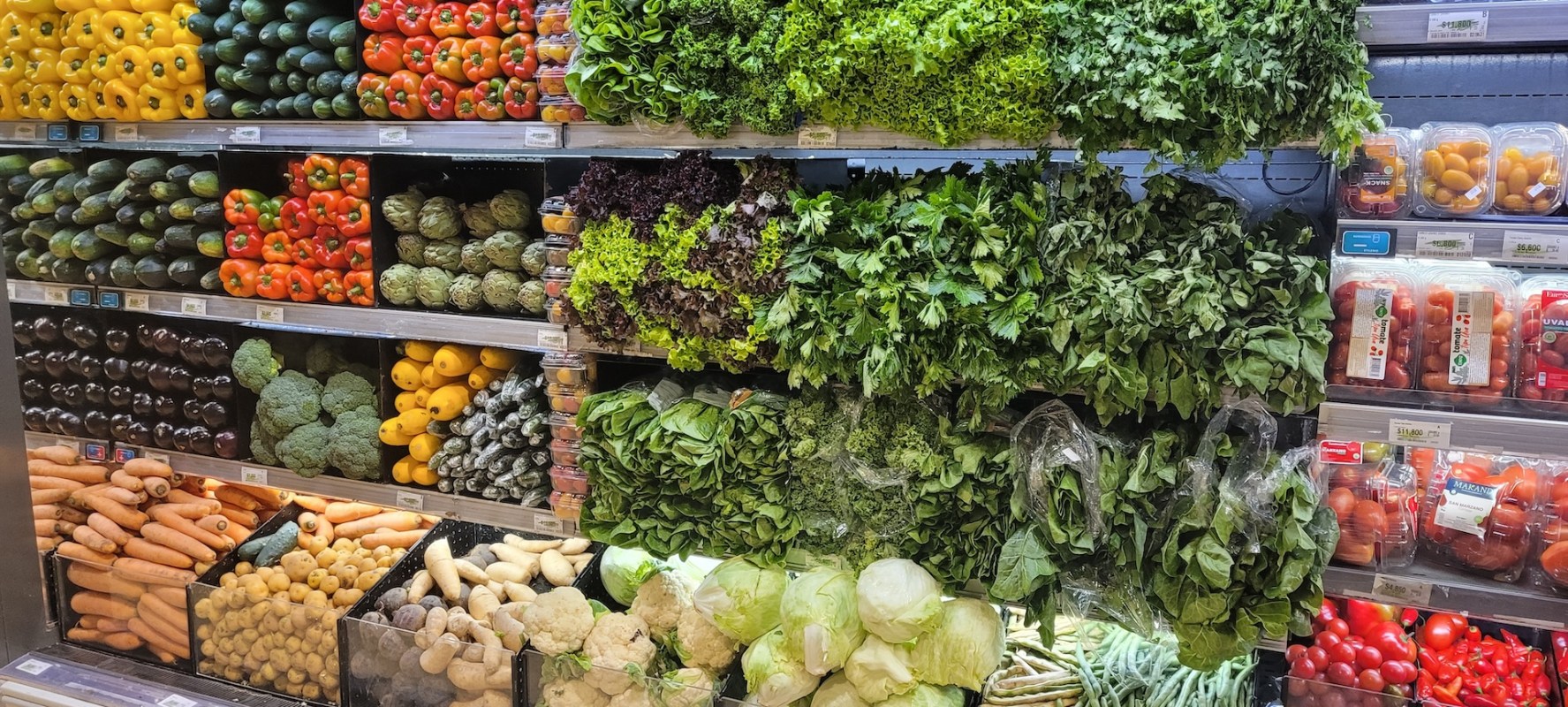Modern inventions have made our lives easier in myriad ways, but one shopper's infuriating journey to the store may be revealing a hidden cost of the search for convenience.
What happened?
In the subreddit r/Anticonsumption, the shopper shared an image of russet potatoes that employed what is seemingly becoming an all-too-common sales practice.

"Potatoes individually wrapped in plastic," the original poster wrote above the image.
Other Redditors didn't hesitate to express their anger at the packaging method.
"Yucky. Wasteful … needlessly expensive," one commenter said.
"No way…." someone else wrote in apparent disbelief.
Why is this concerning?
The way products are packaged impacts their final cost, so unnecessary wrapping contributes to more pricey trips to the store.
"Do people not realize that the skin on the potato is already a protective covering for it that you can rinse off and wash (or even peel off) when you get home, before cooking/eating it?" one commenter asked.
Additionally, the vast majority of plastic is produced from fuels like motor oil and gasoline. As detailed by The Conversation, this is one reason why dirty energy companies are investing in the production of the material as the world transitions to cleaner ways of powering itself.
That leads to a lot of harmful pollution, contamination, and material waste. Around 36% of all plastics are manufactured for packaging purposes.
Why would the potatoes be wrapped in plastic?
According to the label seen in the picture, the plastic appears to be the seller's attempt at providing a low-fuss method of steaming the potato for consumption.
"Microwave in just eight minutes," a sticker on the plastic wrap reads, instructing people not to remove or poke holes in the plastic before heating up the "triple washed" potato.
The packaging may eliminate a step or two from the process of cooking the potato, but heating food in plastic may come with increased exposure to microplastics, tiny particles that scientists are studying for their seemingly harmful impact on human health.
One study made available by ACS Publications found that "microwave heating caused the highest release of microplastics and nanoplastics into food compared to other usage scenarios, such as refrigeration or room-temperature storage."
What can I do to reduce plastic waste?
If your local grocery store frequently sells fruits and vegetables in single-use plastic, growing your own food at home could be a way to avoid or minimize your contact with the material. It could also save you hundreds of dollars per year.
In addition, there are plastic-free alternatives for many everyday products, including reusable food containers, water bottles, sandwich bags, and razors.
Join our free newsletter for cool news and actionable info that makes it easy to help yourself while helping the planet.









